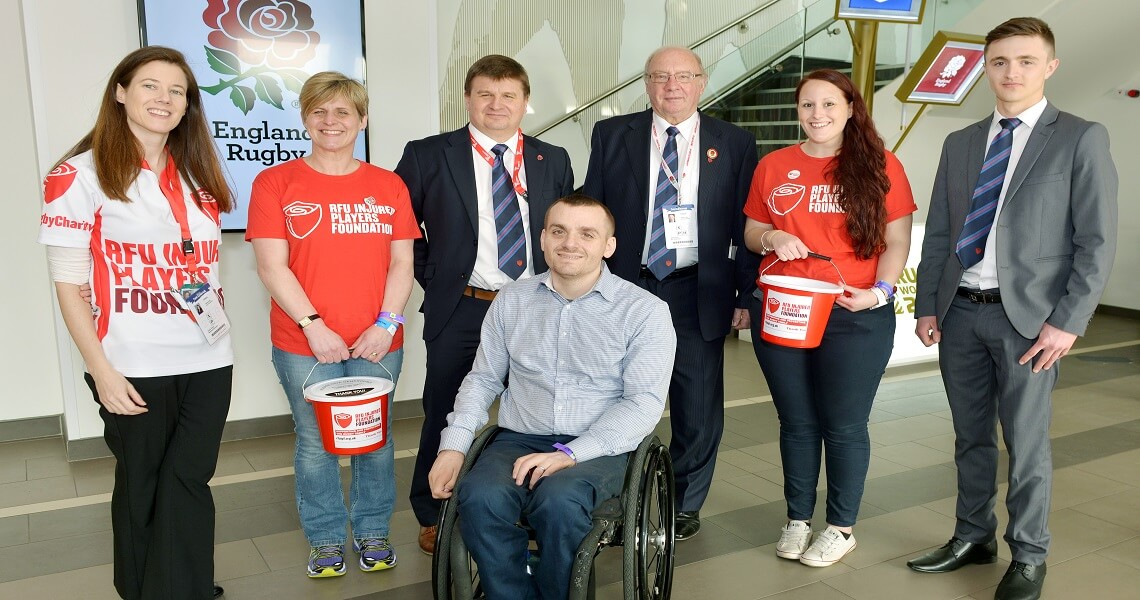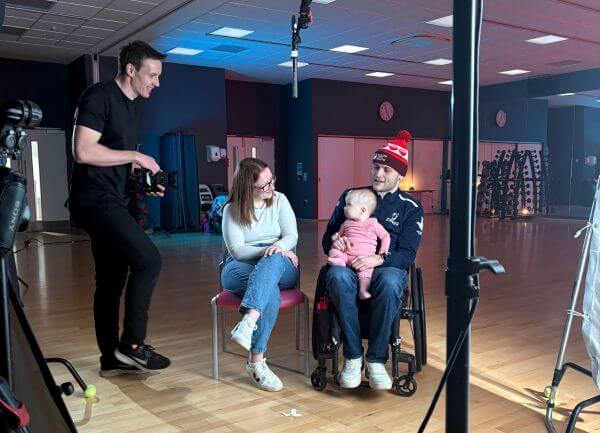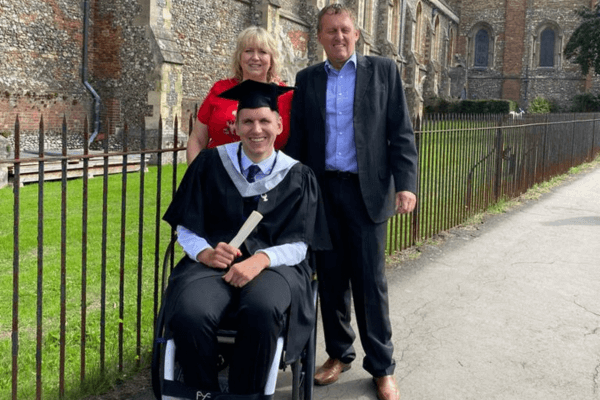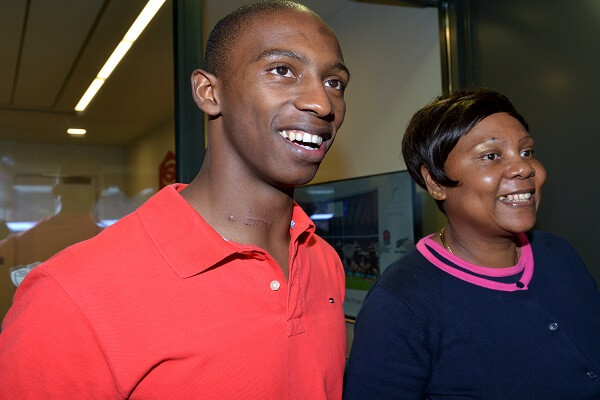We are here to give immediate and lifelong support to rugby players who, while playing rugby union in England at any level and at any age, sustain a catastrophic spinal cord injury or traumatic brain injury which has resulted in permanent disability. Our support is available to help injured players through recovery, rehabilitation and for the rest of their lives.
We also provide information and support to family members, clubs and team mates following such incidents, particularly in relation to how they can help the player with their recovery or adjustment to a new life.
We aim to empower injured players to live a full and independent life, and to support players and their families in any way possible; in whatever way they might need. From the moment of injury, our team can offer the support and guidance needed to help a catastrophically injured player focus on what matters most to them and their family.
Immediate Support
Once informed of a potential catastrophic spinal cord injury or traumatic brain injury, we act quickly to help the player, their family and the club involved. Our immediate support can be in any form needed to relieve pressure and stress at such a difficult time, including:
Travel and accommodation for next of kin
For many families, getting to the hospital regularly to visit an injured player can be a financial or logistical struggle, especially if the hospital is far from home. We can relieve the stress and concern around this by supporting family members with accommodation and travel, so more time can be spent at the hospital, close to their loved one, as often as possible. Where a family is also in financial difficulties through a catastrophic injury preventing someone from covering short-term household bills we also have the capacity to offer support.
Helping an injured player stay in touch with family and friends
It is easy to feel isolated when spending a lot of time in hospital, and while family and friends wants to be there physically as often as they can, it’s not always possible. Following a catastrophic injury a player may have difficulties using their mobile devices, or accessing the internet to stay in touch, so when needed we can provide hands-free or touch-screen devices, or organise internet access to enable them to stay connected to their friends and family at all times. This can play a big part in keeping spirits up, as well as ensuring they’re kept up-to-date with all of the goings on and support from their club and rugby community.
Ensuring catastrophically injured players get the information they need
Speaking with doctors, physiotherapists, and other medical practitioners can be daunting and difficult during such a challenging, emotional and uncertain time. We can provide support and guidance to help them to ask the right questions to ensure they get the answers and information they need. We can also support injured players, and their families, by attending hospital meetings alongside them, to ensure both player and family can communicate their needs to all parties involved in their medical care, rehabilitation, and re-integration in to their community.
Insurance and advice
We can support clubs with the reporting of injuries to the RFU insurers, and can provide access to free legal advice to provide more information about setting up trust funds and how to deal with offers of fundraising support.
There for life
We provide support for as long as needed through regular face-to-face visits by our Client Services Team and network of local volunteers. The IPF also has a grants programme to support injured players to lead independent lives. Each application is considered individually, focusing on the best long-term interests of the person. Grants can be applied for at any time to cover essential needs, and our team can support injured players and their families to access support around numerous areas including:
Rehabilitation
When needed, we work with an injured player’s medical rehabilitation team to make sure they can access the therapy and support needed to optimise their recovery. This could be by covering the costs of vital physical therapy sessions where these cannot be met by the NHS or local authority. It could also include supporting a player to access a spinal or neurological rehabilitation centre to help improve their functional ability, when this is not available in their local area.
Returning home
Leaving hospital to return home after a catastrophic injury is a great moment, but can also present big challenges for an injured player when they are adjusting to a new life and circumstances. In many cases, their home may not be accessible or habitable for their new needs, so we do everything we can to support players and their families on their return home. This could be by working with a local authority to ensure all necessary adaptations and renovations are made, such as installing ramps and vital equipment so that an injured player is not isolated and can access the community, to funding renovations, or a wet room, so that an injured player can be more independent. In extreme cases, and where there are no other options, we can also support players and their families to purchase new properties if this will enable them to live a more independent and empowered life.
Transport
Independent transport can be a life-line for injured players, providing access to work, family and social activities. We can work alongside an injured player and their family to help them access the Motability scheme, and can support with top-up funding for vehicles where this need is not being met by other statutory sources.
Education and Training
A key part of independent life is the ability to maximise educational and career opportunities. The IPF can help with further education and training qualifications to improve career prospects, either through part-funding or fully-funding a degree or Masters course, or by funding training to help them change their job or career path completely. We can also signpost work places to appropriate guidance and support to fully accommodate injured players with potential functional needs when they return to work.
Wheelchairs and Equipment
If an injured player will be using a wheelchair, it is important that it is comfortable and meets their needs. From helping an injured player apply for a wheelchair through their local authority, to supporting them with accessing specialist equipment or power chairs not available through statutory sources, we aim to empower the catastrophically injured players we support to live as independently as possible.
Changing needs
Life-long support means exactly that, as people’s circumstances change, either through age or functional improvements as a result of rehabilitation, the IPF can help with the necessary changes to care packages, home adaptations and changing mobility and wheelchair needs.
Visiting Twickenham
We invite the injured players we support to match days at Twickenham so that they can enjoy the atmosphere and watch the game they love. The RFU have kindly donated a fully wheelchair accessible hospitality box for this purpose, where injured players and their families can watch the match without the worries over cold weather, queues or accessing any necessary facilities. We can also take care of specialist transport or accommodation if it is preventing someone from accessing this experience, so injured players can focus on enjoying the day and meeting other injured players and IPF staff in an informal setting.
We treat every person we encounter on an individual basis and always look to work closely with players and their families to achieve the best possible outcomes for them. For more information on the support we can provide please contact the IPF Team.








